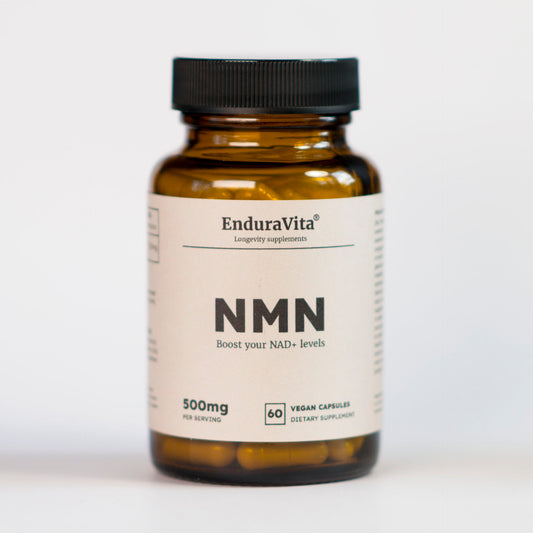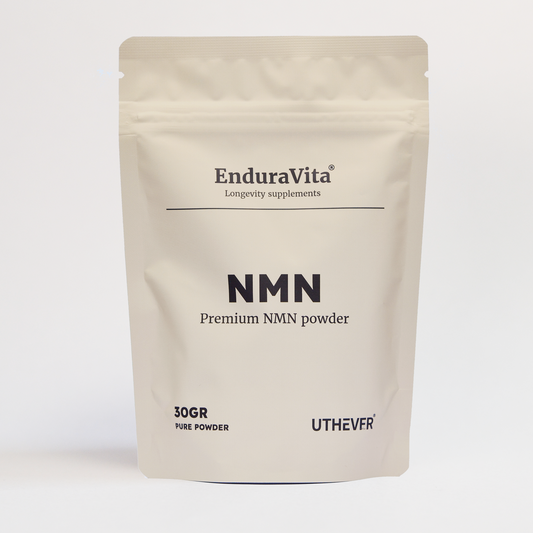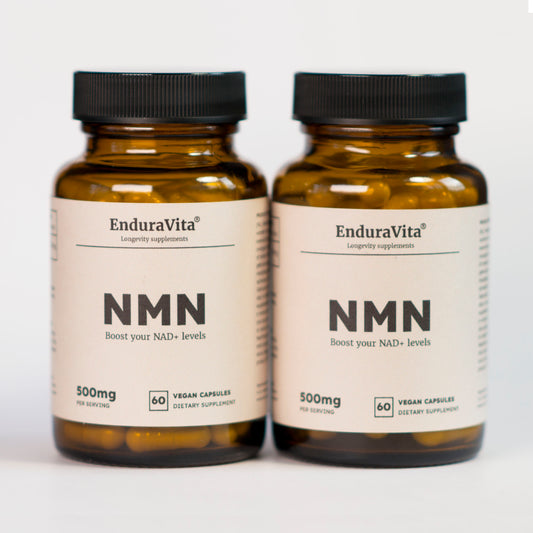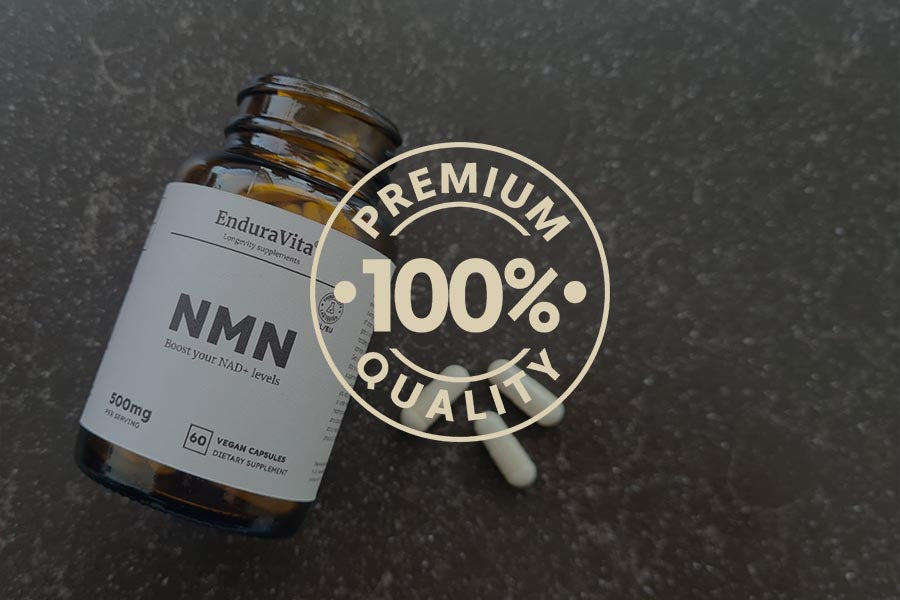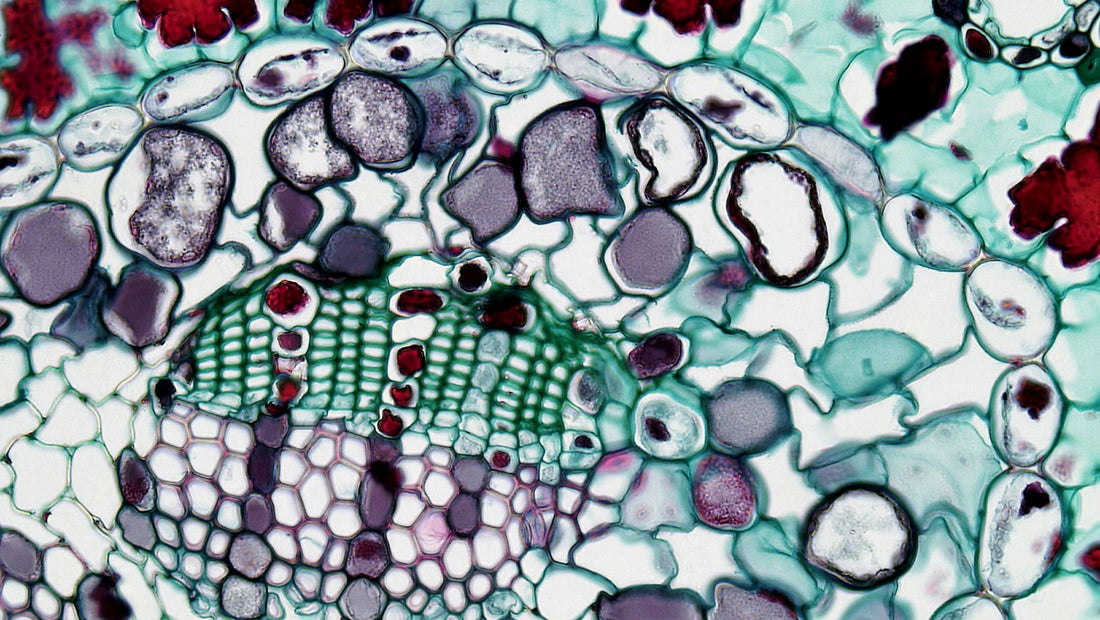
How does aging work at the cellular level?
Aging is an inevitable process that affects every aspect of our lives. It is often associated with external signs, such as wrinkles and gray hair, but aging begins much deeper, at the cellular level. This process affects the structure and function of our cells, which ultimately contributes to the deterioration of overall health. In this article, we delve deeper into the mechanisms of aging at the cellular level and how supplements such as NMN supplements from EnduraVita can contribute to slowing down this process.
What is cellular level?
Cells are the smallest building blocks of life. Each cell in our body has a specific function, whether it concerns muscle cells, nerve cells, or blood cells. The cellular level refers to the biological processes that occur within and between cells, such as cell division, energy metabolism, and the maintenance of cell structures. The health of these cells largely determines how well our body functions and recovers from damage.
Cells have a complex structure, with different components such as the nucleus, mitochondria, and the cell membrane. These components work together to maintain proper function and energy production. When this system is disrupted by aging, it can lead to a decline in overall body functions.
What happens in our body during aging?
Aging is a complex process of biological changes that gradually occur in our body. It begins at the cellular level and has broad implications for overall health. Here are some of the main changes that occur:
Decrease in cell function
As we age, our cells lose their ability to function optimally and regenerate. This is partly due to damage to the DNA and the decrease in the efficiency of cellular processes. The result is a reduction in energy production, which affects the body's ability to repair and renew itself.
Decreasing tissue quality
The decline in cell function also affects the tissues in which these cells are located. Muscle mass decreases, bone density diminishes, and skin elasticity reduces as the cells become less capable of renewing themselves. This contributes to visible signs of aging.
Higher risk of diseases
Aging increases the risk of chronic diseases such as cardiovascular diseases, diabetes, and neurodegenerative disorders. The decline in cell function and the body's capacity to recover increases susceptibility to these conditions.
Causes of the aging process
There are various causes of aging at the cellular level. Understanding these causes can help in developing strategies to slow down aging.
Oxidative stress
Oxidative stress occurs when free radicals in the body damage cells. Free radicals are molecules that have an odd number of electrons, making them unstable. They react with cellular components such as lipids, proteins, and DNA, leading to damage. This damage contributes to the aging of cells and increases the risk of chronic diseases.
Inflammation
Chronic inflammation is another important factor that contributes to aging. When inflammatory responses are present for a long time, they can damage cells and reduce the body's ability to regenerate itself. This prolonged inflammation accelerates the aging process.
Telomere shortening
Telomeres are the protective ends of chromosomes. With each cell division, they become shorter. Once the telomeres reach a certain length, the cell stops dividing, which leads to aging and eventually cell death. Telomere shortening is one of the fundamental causes of aging at the cellular level.
Glycation
Glycation is the process where sugar molecules bind to proteins, causing these proteins to function less effectively. This affects cells and tissues, reducing cellular function and accelerating aging.
Hormonal changes
The decline of important hormones such as growth hormone and testosterone has a significant impact on the regenerative capacity of cells. These hormonal changes can accelerate the aging process.
How to counteract cell aging?
Although aging is a natural process, there are ways to slow its effects. Below are some examples to combat cellular aging.
Healthy food

Nutrients such as vitamin C, vitamin E, and omega-3 fatty acids play an important role in protecting cells against oxidative stress. A diet rich in antioxidants can help prevent cell damage and support overall health.
Exercise
Regular physical exercise is one of the best ways to combat aging. It helps maintain muscle mass, improve bone density, and boost metabolism. Moreover, exercise has a positive effect on overall health and slows down aging.
Sleep and stress management
Sufficient sleep is important for the recovery of cells. It gives the body the chance to regenerate and repair damaged cells. Stress management is also important, as prolonged stress can lead to inflammation and oxidative damage that accelerate the aging process and counteract cellular aging.
Counteract skin aging
Skin aging is one of the most visible effects of the aging process. There are several ways to combat skin aging. One of the most important measures is the use of sunscreen to protect the skin from harmful UV rays. UV radiation causes damage at the cellular level, leading to premature aging of the skin.
In addition, it can Resveratrol play a role in combating skin aging. This powerful antioxidant helps protect the cells in the skin from oxidative damage and supports the recovery process. Ultimately, this also helps to counteract cell aging.
NMN supplements and their role in combating aging
What is NMN? NMN (Nicotinamide Mononucleotide) is one of the most promising supplements for slowing down aging at the cellular level. NMN increases the levels ofNAD+ (Nicotinamide Adenine Dinucleotide) in the body. NAD+ is important for energy production in cells and plays a significant role in cellular repair processes. As we age, the amount of NAD+ in our body decreases, which contributes to the aging process.
Various studies show that supplementing NAD+ with NMN can have beneficial effects on aging:
- Studies in the elderly: In a study in China showed improvements in their physical performance. Additionally, their biological age remained constant, while the control group showed signs of aging.
- Studies in adults: One publication in Translational Medicine showed improved insulin sensitivity, increased energy levels, and enhanced muscle strength in middle-aged adults who used NMN. This indicates a preventive effect against age-related metabolic issues.
- Animal studies: The study published in Frontiers in Cell and Developmental Biology examines the effects of NAD+ supplementation, stimulated by NMN, on the mitochondrial function of mice. In mice that received NMN, mitochondrial function improved. Energy production also increased. This led to increased physical activity. Additionally, metabolic health was improved according to this study.

